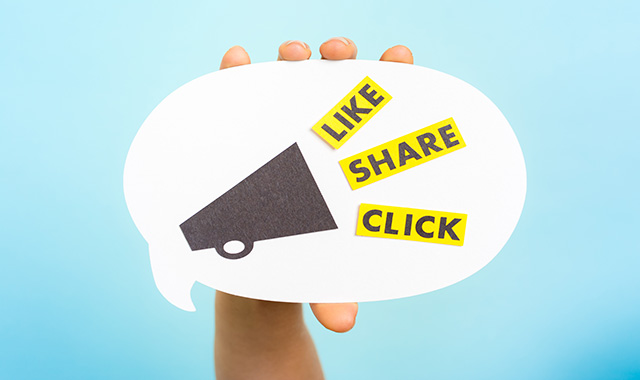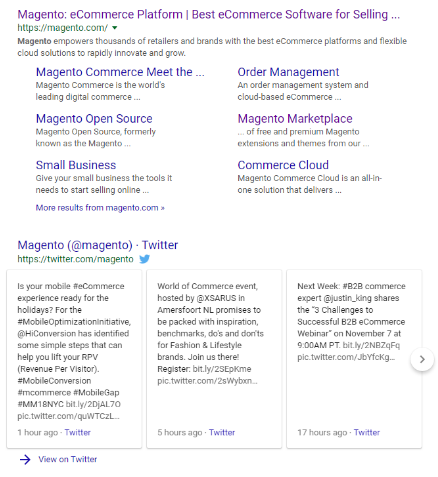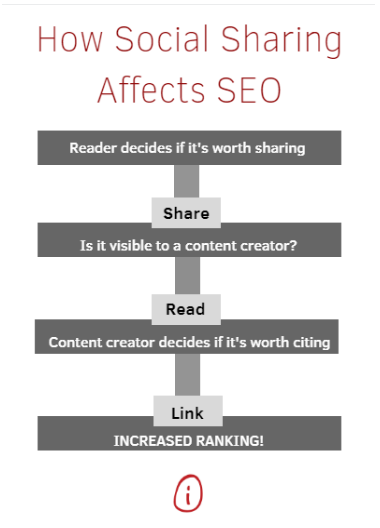
We’ll get straight to the point—social media does affect SEO. More interestingly, though, is the question of “How?” Business owners are told over and over again that having a social media presence is key, but sometimes it can be hard to see the benefits. Social media is a great asset for businesses for a lot of reasons: it’s a great customer service tool and a convenient place for customers to get information about a business.
Beyond those incentives, one of the best benefits of social media is the way it works in sync with an SEO strategy. Though social media does not directly impact website rankings, it is still a very powerful tool used to leverage SEO.
Read on to take a closer look at how social media affects SEO by increasing visibility, brand recognition, and more.
Increase Your Online Visibility and Traffic to Your Site
The simple truth is that the more a business puts itself out there, the more people will see it. The main driving force behind any marketing effort is to increase leads and sales—in order to convert potential customers, they must be coming to your site in the first place.
When searching for a company online, social profiles will most likely appear in the first page of search results, usually right under their website. This means that if your company has social media accounts like a Facebook page or Twitter profile, it will serve as another opportunity for potential customers to see you when they make a Google search.
Check out the example below:

A simple google search for the word “Magento” has the company’s Twitter account appearing second in the search listing. This may seem minor, but it does increase the chances that they will end up on one of the pages that you control. Remember: the bigger the net, the more fish you catch.
Boost Your Brand Recognition
Brand recognition is important for any company; when an audience can recognize a company by its logos, slogan, or brand colors, you’ve done something right. In order to further increase brand authority, utilize your various social media profiles to encourage social sharing. But, despite the common misconception, “popularity metrics” (like the number of followers or likes) do not cause higher rankings.
What does cause higher rankings, though, is the chance that someone on social media will share your link and increase the number of inbound links to your site. Content will gain popularity—as well as credibility—and this can improve your rankings. Check out this infographic below:

As you can see, a couple of things must go right in order to affect rankings in a positive way. In order to help this process, it benefits you to actively build relationships with content creators so they consistently cite your content.
In addition, social sites give customers a chance to review businesses. Reviews can be a huge factor in SEO, especially when it comes to local businesses. Search engine algorithms love reviews, and they make up 13% of ranking factors when it comes to local searches, and 7% for general searches. Be sure to encourage reviews with incentives or gentle reminders through social media; they can make a big difference with customer trust and SEO.
Extend the Life of Your Content
There are over one billion active daily users on Facebook. That’s a lot of likes, comments, and shares for you to tap into. With a blog, once you publish a post, it can get buried underneath pages and pages of other posts and seem lost forever.
But with social media, you can repost old content when it’s relevant to do so, or blast out messages whenever you want so you know your word is getting out there in a more controlled way. In addition, you can target content towards the audiences you know will benefit most from your messages. That may mean reposting an older blog on Twitter when a similar topic is trending or referencing an older, more-detailed blog in a Facebook post depending on what followers have been most engaged with recently.
Get A Leg Up On Local Rankings
We’ve already discussed the importance of reviews for SEO, but it’s also important to be consistent with business listings and NAP (name-address-phone number) citations. This consistency in how your business is listed across the web (including social media) is essential for local SEO. Social media profiles need to have keyword-rich descriptions, clear indications of services, hours, phone number, and an address that is identical to the one on your Google My Business profile.
When you are consistent with your NAP (meaning the same information shows up on all profiles and directories) search engines understand who you are, what you do, and how users can find your business.
Good Rankings Take Hard Work
Recognize that rankings are an outcome, not an action. The best search optimizers understand the importance of indirect benefits that come from social media. Many aspects of modern marketing are based on relationships—including search. And relationships are created on social media.
If you need any more information on SEO or social media, feel free to contact us today.